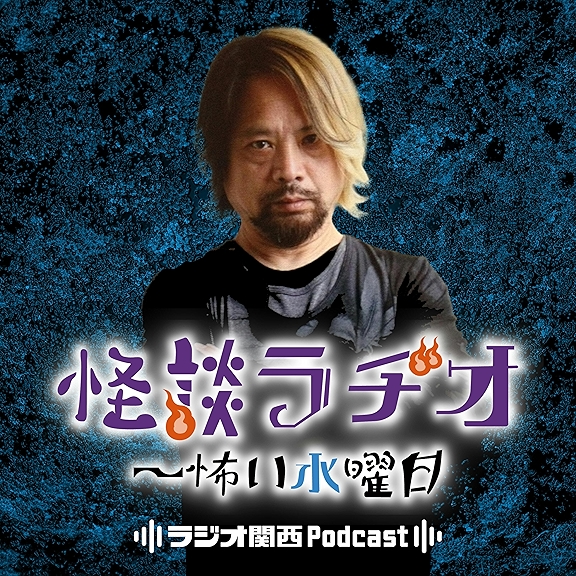
Today I will be interviewing Dr. Debi Silber, founder of PBT (Post Betrayal Transformation).
We will talk about the pain of being betrayed and will help us understand and learn how to come out of it as a better person Creating a New Tomorrow for ourselves.
=======================
Ari Gronich
0:05
Welcome back to another episode of creating a new tomorrow. I am your host Ari Gronich. And today I have with me Dr. Debbie Silber. She is the founder of the post betrayal transformation Institute and is holistic psychologist, a health mindset and personal development expert and the author of number one best-selling book, “The unshakable woman four steps to rebuilding your body”. Dr. Debi, let me just ask you to talk to the audience. Tell them a little bit about your background and why post betrayal? That seems to be an odd thing to niche in. So..
Debi Silber
0:42
Yeah, I don't. I don't think anybody says, Oh, I think I want to study betrayal. No, it's actually my 30th year in business. And as life would morph and change, so would so with the business. And I was in health and mindset and personal development, and then trauma. And I had my first betrayal from my family, and I thought I did the work to heal. And a few months when a few months, few years later, actually it was my husband, and anybody who's been through it. You're blindsided. You're shocked. You're devastated. You know, life as you've known it is no longer. So got him out of the house. And I thought about I said, Okay, well what similar to these two experiences. And I realized I never really took my own needs seriously, it was about everybody else, boundaries were getting crossed. I was like, something's got to change. And that's me. So four kids, six dogs, and a thriving business. I was 50. I'm like, that's it. Going back for a PhD. I didn't even know where that idea came from. I didn't know how I was going to pay for it, how I was going to do it. But it was in transpersonal, psychology, the psychology of transformation, human potential. And while I was there, I did a study, I studied betrayal, what holds us back what helps us heal and what happens to us physically, mentally and emotionally. When the people closest to us lie, cheat and deceive. That study led to three groundbreaking discoveries which changed my health, my business, my family, my life.
Ari Gronich
2:07
Very cool. So betrayal. Let me ask you a question. All of what you kind of said was betrayal from others? And then you talk about working on you. Right? So the biggest question is the betrayal that we give to ourselves? So can you talk a little bit about that?
Debi Silber
2:35
Sure. Self-betrayal is huge. And there's such a link between self-betrayal and betrayal. You know, self-betrayal is when you know, something isn't in your best interest and you do it anyway. You know, something doesn't serve and you do it anyway, you know, you shouldn't do something, feel something, keep going back for something and you keep doing it. So we're betraying ourselves, you know, it's not in our best interest yet. We keep doing it. So that's self-betrayal.
Ari Gronich
3:02
Okay, so how does that extend into others betraying us? Because what I've found, at least in my experience is, the harder I treat myself, the harder I get treated by others, right, so it directly correlates to, I'm expecting, at this point people to betray me. And so I'm going to invite that in so to speak, versus No, when I have to have a barrier between myself in that or boundary.
Debi Silber
3:33
Yeah, uh, you know, if we write the script for how people treat us, but there were so many things in what you said, like what one thing is, if you expect it, for sure, that's what you know, that's what you'll have. And that's why we see so like, I can spot an unhealed betrayal from a mile away. And one way is when there's a repeat betrayal, because here's this opportunity for us to learn something really profound, not that we're causing the betrayal, but there's a real opportunity here and until and unless we do we will keep getting opportunities in the form of people to teach us this, you know, maybe the bound you know, the rule is that where the lesson is, I need better boundaries in place. I am lovable, worthy, deserving, whatever it is, and you know, it's time to get that lesson so it doesn't have to keep repeating itself.
Ari Gronich
4:22
Just so in the context of how we create a new tomorrow and activate our vision for a better world. You know, what do you say is like the number one, number two, number three things for people to do, so that they can understand this and begin creating a new tomorrow today for themselves?
Debi Silber
4:45
Yeah, well, I mean, the first thing is, like I live real simply have a very simple rule. If it's going to hurt someone, don't do it. Mostly shocked and amazed that other people just don't follow those same rules. So it's really simple. It's like if you want to make a Better Tomorrow, do right by people, you know, lead with kindness, live and love, like, don't just don't hurt people period. But that's not you know, people are acting from their current level of consciousness from where they are. That's the, that's the choice they think is the best, the best move. So, you know, so what do we do, of course, the first thing is prevent something from happening in, in the first place, that's best-case scenario. the second best is to clean it up, clean it up for the betrayed person, there's tremendous opportunity for growth. But for the betrayer, there are two. That is what could be the biggest wakeup call of their life. You know, with some people, it's just on to the next there's a void, there's a hole, there's a gap, and they just don't want to look, don't want to see. So they just keep looking for something on the outside to fill that inside need. You're really not working with much here. So when that's the case, you know, you heal yourself and, and rebuild like, in my scenario. I learned rebuilding is always a choice, whether you rebuild yourself and move on. And that's what I did with my family. Or if the situation lends itself and you're willing, and you want to, you can rebuild something entirely new with the person who hurt you. And that's what I do with my husband. So not long ago, we married each other again. And there's the opportunity, but I never in a bazillion years would have done anything like that if I wasn't totally different, and for sure if he wasn't either.
Ari Gronich
6:33
Interesting. So here's where I guess I'm struggling with, with some of this is there's a lot of there's a lot of self-accountability, right. But there's also this accountability to and for others. And so when you say something like, just don't hurt people, right? I think to myself, well, I could be just doing me being a good person, the way I'm a good person, and somebody may get hurt somehow seigneur in some way. And so how does not hurt somebody and take care of your business internally and your internal pain so that you're not basically being a pain thrower, throwing your butt off onto people. So I'm trying to, I want to get the balance here for the audience of this.
Debi Silber
7:38
It's a great question. intentionality is really where it is, you know that that's what I'm talking about. When you intentionally are hurting someone, you can of course, listen, if you accidentally bump into someone, you weren't trying to hurt them. It's just it was an accident and things happen. Betrayal, the reason why betrayal is such a unique type of trauma is because of how intentional it is, when someone's breaking the spoken or unspoken rules of that relationship. And every relationship has them. Right? It's a breaking of those rules. One person was abiding by the rules, and the other person without their awareness or consent, broke the rules. That's where it's an issue. If both people in relationship, whether it's friends, family member, partner, whatever. If it's an understood thing, hey, there are no rules here. Okay. And if that's your rule, that's okay. But when there's an understanding, spoken or unspoken, you know, and when one person chooses to break that, and breach that trust, that's what I'm talking about.
Ari Gronich
8:47
Gotcha. Okay. So then let's talk about businesses, betraying, you know, people, right, so let's talk about that a little bit. Because as I sit and look at politics, and look at businesses and look at all the things going on religion, there's been a lot of betrayal of the trust that people have been placing in them. And so that's where my question to you would be. Let's talk about the larger betrayals beyond individual to individual that, you know, community, to individual country to individual religion, authority figure, whatever it is.
Debi Silber
9:31
Yeah, you broke up for a big piece of that. So I'm going to try to imagine what you were saying here. It's so widespread, it really is. I mean, even so, you know, I remember in my research, reading about consumer betrayal. I mean, we can think about it you can, and the study even found there is something called the love versus hate principle, something like that, where we would rather knowingly do something, we know is bad for buy something we know is bad for us, then be duped. For example, you know cigarettes, we know it's bad for us, right? But if someone were to purchase it, or they would rather do that, then buy a product that says, let's say it's good for us and it's not. Right. So it and then because quickly that love for that company turns to hate, we are furious. It's that feeling of being duped and yeah, so much. You know, we're feeling it in so many areas of life right now. Just even in this post COVID world we're living in. And, you know, where some people are just feeling the we could feel betrayed by our own bodies, we could feel betrayed by life by government, by God, I mean, people can universe source, whatever you say. So it's really, you know, even a breaking of those expectations, right. But the way it works with betrayal is the more we trust, and the more we depend on someone that deeper that betrayal. So a child, let's say, who's completely dependent on their parent and parent does something awful, it's gonna have a different impact than your best friend share your secret.
Ari Gronich
11:03
So then, what is the mechanism, right? I talked about this a lot on the show the mechanism that causes people to act against their own self-interest, because I look at what's going on, just in general, the news, for instance, right? I think it's probably a high percentage of the population that feels betrayed by the news that feels like everything is being lied about, like we go down the aisle in the grocery store, we see all natural, healthy, and then you look at the ingredients, and there's almost nothing natural or healthy about it. Right? So how does somebody number one, emotionally deal with the fact that they are constantly being lied to betrayed and treated in a way that's, you know, against their own self-interest? So have the emotional side of that, but then how do we get people to act based on that so that we can stop those trends?
Debi Silber
12:07
Yeah. You know, it's a great question. Because if anything makes you angry, it's that you're being lied to. And, you know, and that's where trust gets shattered. Because then we look at it. Like with the closer the more obvious betrayals, we say, I can't trust my betrayal. I don't even trust myself, how did I not see how did I not know? So how do I then trust this person, that person, so trust is completely and totally shattered. And that's why it's so traumatic. We, you know, we have to be discerning. So what we don't want to do is just be so unwilling to trust because if there's no trust, there's no relationship. There's no, there's no intimacy, there's no closest you're living half a life, right? It's like you're getting burned on the stove. And you're like, that's it. I'm never cooking again. Right? Yeah, it's not fair to you. So we need to have some level of understanding that people are acting from their current level of consciousness, this is the best they can do for right now. Now, how do you change it? yet? Like a role model? You do? You, you do you the best way you can. And if people ask me all the time, you when it comes to, let's say, kids, you know, they're watching everything you do way more than what you say, it's what you do. So just do the right thing as best you can, from where you are right now.
Ari Gronich
13:32
Okay, so that is a partial answer. So that's the emotional side, write active site, to activate yourself to stop that behavior from not just affecting you, but when we see it, I consider that to be the bully, right? So the behavior is, it's the bullying behavior. So I always say silences are bullies' best friends. So if you want to stop the bully, you got to get loud, right? So in this case, how does somebody get loud start being noisy about the fact that hey, this is going on. And yet doing it not in a victim way but doing it in let's empower ourselves and the rest of the community to say, Hey, we should probably not do this.
Debi Silber
14:20
Right. So I mean, I don't think it really you accomplish anything from a victim standpoint, except making yourself sick. And that's really all you do. from a place of strength. It's having boundaries in place, and standing firm with them not being flimsy with your own boundaries. And the easiest way to see this is what would I recommend to someone else? If I'm, if I would say, if someone were to come to me and say, What do I do about this, or should I tolerate this or that or the other thing? You know, what am I doing? If here's the thing when it comes to betrayal to if I would be Completely an unwilling to completely unwilling to accept anything less than what I deserved, let's say from that person who betrayed me, Well, I have to be completely willing to show up in that strong, powerful way myself. So I have to be unwilling to accept anything less of myself. So I can't just, you know, anything goes, No, I'm holding myself to a higher standard. If I'm gonna hold someone else to it, I start first.
Ari Gronich
15:27
Right, I understand that. So I don't want to go bigger with that again, you know, my whole thing I want to go bigger, with bigger and deeper, bigger and deeper. So, again, I go, this is cool. And let's talk cancer is a betrayal, right? It's a betrayal. The betrayer is, let's say, in some case, the cigarette company, right? The cigarette company is lying to you for 50 years telling you that it's good, right? And now. And now it's done right now. Now we know. So now you're you've become the betrayer yourself, because now you have an open relationship with what used to be the betrayer, which is the company.
Debi Silber
16:15
Right? So now my role is to not spend a penny with that company again. Because if I do that, and the next person does that the next person does and the next person does that. We're not supporting something that isn't in our best interest.
Ari Gronich
16:30
Okay, so how do we develop the chain reaction? If we see something that systemically bad not for us, but for everyone, right? How do we stem that chain reaction? So I'm going to go to a deeper thing cigarettes is like, easy, right? We already kind of have that around, let's say pesticides in our food, right? Which cause cancer, which are very toxic to your nervous system, your immune system, all those things, right? So let's talk about that. How do we get in not just you and me who have gone organic or whoever who, you know, says let's all go organic? And let's hug trees, right, which completely divides people? How do we get that train going to the companies that are providing those chemicals to stop the governments that, you know, like, how do we stop people? Yeah, other than just saying, I'm personally not going to do that, because one person's pennies don't mean as much as 100 people's pennies.
Debi Silber
17:35
Absolutely. But you know, it's like, they're the only word that comes to mind is critical mass, if I do it, if you do it, and then if our message gets to the next person, the next person, the next person, you know, that's, that, to me, is more effective. Listen, some people are activists, and they're going to be the ones with the signs and you know, protesting outside the company headquarters, and I get that I'm going to do my part and not supporting something and sharing the message to, let's say, my community, and doing my part. And if everybody does their part, it's we can have that that critical. That critical message, it reminds me of that starfish story, you know, you hear the starfish they're all the starfish on the laying on the beach. And there's the I think it's like a grandchild grandson and a grandfather and or something, no son, whatever. And they're just throwing one starfish in and one starfish in , and they're like, well, what's the difference? There are so many 1000s it's like well, this one made a difference to this one made a difference to this one. So I look at it like we're beautiful. We have a beautiful opportunity to do our part, share with our community, be the role model and let that let that grow. So I don't think the anger is what moves the angle if the anger motivates. That's beautiful. But coming at it from a place of strength not a place of just reaction.
Ari Gronich
18:59
Right. But I guess what I got from you, which I was looking for, was the share.
Then get out and you know, not just keep it within for a year yourself. Right? Well, but share it right?
Debi Silber
19:17
Well, of course. I mean, that's why I opened up the PBT Institute. What's the point of me just healing? I mean, I made a vow. I said if I, if I heal, I'm taking Everybody with me. You know, why on earth would I just do this for just myself? It's like, I feel like we owe it to others. If we've been through something, how do you not share that and shorten someone else's learning curve. And if everybody does that with their own experience, someone has a financial crisis. They teach how to avoid it. Someone has a health crisis. They teach how to avoid I had a betrayal crisis. I teach someone how to heal from it. I mean, I think that's, that's how we contribute.
Ari Gronich
19:53
Awesome. So I like the anger. The anger absolutely motivates me. In some ways, and I like action, right? I like the movement of action; which activism is that? And I'm like for my audience you know, I'm calling for activism these days for people to be actively not going against the system but actively looking for ways that they can improve on the system. So Buckminster Fuller, one of my, you know, mentors, I guess. inspirations, I'd say, you know, used to say, you don't build something, or you don't fight the system, you build something better next to it, and people will come. That's a paraphrase. But that's the idea. So what are we building? Right? for people to come to that's better than the system that we've had. And so for you, you've created what you know, you call the PVT right?
Debi Silber
21:08
The post betrayal transformation Institute, there is nothing like it that exists. It's like how people know, a is if you have an alcohol issue, the PBT Institute is if you have a betrayal issue, you're not meant to stay there long. It's the training wheels until you don't need them. But there's a roadmap and a predictable way to heal now. So if we can avoid it, next best is heal from it quickly.
Ari Gronich
21:30
Awesome. So then I'm going to go into something I talked to you a little bit about in our pre interview, which is the body, the cymatics, the trauma that lives inside of your cells. Because at least in my years of experience, I don't really see talk so much, or cognitive behavioral, do very much for a person long term, it usually brings up the stuff more and you know. So I talk a lot about cymatics and bodywork and getting the issues out of the tissues. So we talk a little bit about that, and how that relates to what you're talking about.
Debi Silber
22:11
Oh, yeah, it's a it's a huge component of healing. You know, the talk therapy, it can do one thing, if you're unpacking it so that you do something with it. That's beautiful. But if you're just unpacking it, so you're just looking at it. I just don't see the point of that. I mean, and here's the thing, we found, the wrong type of support does way more harm than good. Because if someone is in highly skilled, you know, we're talking about betrayal here, if they're not highly skilled, and how to move someone through betrayal, it's it can re traumatize and just keep them re traumatized because so many therapists actually blamed the betrayer. Right, you know, let's say I we've seen this so many times, husband and wife goes to she drags him to couples counseling. And if that therapist isn't highly skilled in let's say, narcissism, let's just say right? Narcissus, crocodile tears, very charming. And the therapist can look at the betrayed say, you know, he just learned to communicate better. It's like, Are you joking? You know, so. So it's that has a role. Certainly, if it's a qualified therapist, there's an important role there. But you're right. It's it goes so much deeper. And you know, that was one of the discoveries that there's this collection of symptoms, so common to betrayal, it's known as post betrayal syndrome. We've had about 25,000 people take the post betrayal syndrome quiz, actually pulled some stats, if you want me to show you absolutely, and we have, every age represented just about every country in this is men and women. So this is so you see, how betrayal, shows itself physically, mentally, and emotionally ready. 78% constantly revisit their experience. 81% feel a loss of personal power. 80% are hyper vigilant 94% deal with painful triggers, those triggers can take you right down. These are the most common physical symptoms. 71% have low energy 68% have sleep issues, a 63% extreme fatigue, so you could sleep you wake up, you're exhausted. Those are your adrenals that have just crashed. 47% have weight changes. So in the beginning, maybe they can't hold food down, and then later on, they're using food for comfort. 45% have digestive issues, anything from constipation, diarrhea, IBS, Crohn's, colitis, you name it. The mental symptoms 78% are overwhelmed 70% walking around in a state of disbelief. 68% are unable to focus 64% are in shock. 62% are unable to concentrate. So imagine here you can't concentrate. You have a gut issue. You're exhausted and you're supposed to work and raise your kids or whatever you're doing. That's not even the emotional ones. 88% extremes sadness. 83% are angry, just mix sadness and anger and that's exhausting, right? 82% feel hurt 80% have anxiety 79% are stressed. Here's why I wrote the book trust again 84% have an inability to trust. 67% prevent themselves from forming deep relationships because they're afraid of being hurt again. 82% find it hard to move forward. 90% want to move forward, but they don't know how?
Ari Gronich
25:32
Well, those are some pretty intense statistics, I'm actually very glad that you bring them up. Because, you know, I'm a woowoo scientist, I like science. I like research. I'd like, you know, the double blinds. I like that stuff. And I like the woowoo at the same time. So, you know, so yeah, so let's break some of that down a little bit. If you break down each one, like, what does that story tell you, like, just tell the story of what those numbers are?
Debi Silber
26:07
Yeah, the story is and one thing I can share, too, was one of the other discoveries, the five stages that we go through from betrayal to breakthrough. But what it shows is someone can be fresh out of the shock of their experience, or drowning in it. It can be decades; it could have happened decades ago. And they think just because time has passed, they're better and they're okay. And they're not. And it's interesting, because in the quiz, there's a question that reads, is there anything else you'd like to share, and people write things like my betrayal happened 35 years ago, I'm unwilling to trust again, my betrayal happened 40 years ago, I can still feel the hate my betrayal happened 15 years ago, I feel gutted. So we know, you know, we've all heard Time heals all wounds, and I have the proof when it comes to betrayal. That's simply not true. So this is a representation of people who are stuck and struggling.
Ari Gronich
27:04
So what do you do? what would you consider a percentage of the population that has betrayal? Because I would look at the world right, and birth to death? I don't see anybody getting out of life without several betrayals, let alone You know, major ones, but several major betrayals, so what does that mean, for a country a populous. I mean.
Debi Silber
27:33
You know, it means we have, we have so many things that we do so well, and so many things that we suck at. And where we really, it would really serve us to step up our game, something like betrayal. I mean, you see the havoc that is left in the wake of a betrayal. So you know, when that's what's left, after someone just breaks that unspoken or spoken rule, right? There's so much cleanup, there's so much heartache, there's so much damage, right. So it would really serve to just learn more about like, I wish everybody knew these stats, I wish everybody knew. So this way the betrayal could be like, again, do I really want to cause that, you know, these symptoms? To me, the person I say I love, right? I mean, because it's, it's inevitable. Now, that's not saying you have to stay with these symptoms at all. You can heal from every single one of them. I did. But that's where you land. And that's where you know, you can stay if you choose, you know, staying stuck is a choice.
Ari Gronich
Yeah, so what's, you know, talking about those five steps?
Debi Silber
Sure. So, so, you know, even but can I give you a little analogy, I think this would really serve, because I see this all the time with people where they are the ones who do get stuck, you know, I here's the difference between resilience and transformation, resilience is restoring. And you need that fear every day. When it comes to betrayal. It's more like trauma and transformation. So using this analogy of a house, and I talked about this in in my second TEDx, do you have post betrayal syndrome? So imagine the house needs a new paint job and you paint, right, that's resilience, you're bringing it back, you're restoring it, or it needs a roof you give it a new roof, that's restoring resilience. Here's trauma and transformation. A tornado comes by and levels your house, right paint jobs, not gonna fix it, and a new roofs not gonna fix it. Here's the thing, though. You have every right to stand there at the lot where your house once stood and say, Oh my gosh, this is the most awful thing that's ever happened and you'd be right. And you can call over everybody you know, and say, look at this. Isn't this the most terrible thing you've ever seen? And they all agree, and you don't have to do anything. However, if you choose to rebuild your house, you don't have to but If you choose to, why on earth would you build the same one? There's nothing there. Right? Why not make it so much better, so much more beautiful. That's the opportunity. Betrayal is the setup for transformation. And when we look at it like that, we could be like, okay, it's leveled, it's dead and gone. I can at the very least rebuild a strong solid me. But who knows? A strong, solid, new couple, you could do that, too. Anyway, I wanted to share that before I got to the five stages.
Ari Gronich
30:29
Yeah, no, I appreciate that. Because it brought something up in me, which is that rebuilding stage? And so one of the things that I've said, as somebody who's had a brain tumor all my life, right, is, I don't know who I would be, without this tumor with without the pain without the struggle without the angst. Without the trauma, without the betrayal without any of those things. I don't know who I would be. And then somebody gave me this glass or this coffee mug that said, life is not about discovering yourself, it's about creating yourself or something like that. And so when I look at, or when you're talking about the rebuilding part, decorating your house the way you want it, building the rooms and the space the way you want it, how does one even envision that from the place of betrayal from a place of, of damage?
Debi Silber
31:36
Yeah. And in the very beginning, getting out of bed, maybe all they can do. So I'm just acknowledging that because that's, that's real. And I'll walk you through the stages. In this way, you'll see exactly where someone is, and, and you'll know and I invite everybody to think about, as I'm going through them, picture yourself, if you're if you're there, if you were there, you know, where are you? Because you'll see yourself clearly. The first stage was a setup stage, I saw this with every study participant Me too, if you imagine four legs of a table, the four legs being physical, mental, emotional, and spiritual. What I saw with everybody was this real heavy lien on the physical and the mental, and kind of ignoring the emotional and the spiritual. What does that look like, looks like we're really good at thinking and doing, not really prioritizing the feeling and being, but that's where intuition lies. So often, we turn that down. But if there's a table with only two legs, easy for that table to topple over, and that's us, that's not to say, if you're busy thinking and doing, you're going to be betrayed, it's just that was what I saw. Stage two, this is by far the scariest of all of the stages. And this is shock, trauma, the day, discovery day. And this is the breakdown of the body, the mind and the worldview. You're shocked. So you've just ignited the stress response. Now you're headed for every single stress related symptom, illness condition, disease, your mind is in a complete state of chaos and overwhelm, this makes no sense. You cannot wrap your mind around what you just learned. It's like a weird time warp thing that's happening right now. And your worldview is shut has just been shattered. That's your mental model. These are the rules. This is our life works. Don't trust that person go there, right. And every rule that governed life is no longer it's terrifying. Bottom is bottom down on you. But think about it. If the bottom were to bottom out on you, what would you do you grab hold of anything you could to stay safe and stay alive? That stage three survival instincts emerge. It's the most practical of all of the stages. If you can help me get out of my way, how do I survive this experience? Who can I trust? Where do I go? How do I feed my kids? Like it's that practical? Here's the trap.
Debi Silber
33:47
Once you figured out how to survive, because it feels so much better than the shock and trauma of where you just came from, you're like, Okay, all right, we got this, and you start planting roots here. We have no idea. There's a stage four and stage five waiting transformation doesn't even start till stage four. But because you think this is it, you better figure out a way to make it work, a few things start happening. The first thing is, you start getting those small self-benefits, right? You get to be right, you get your story, you get someone to blame, you get a target for your anger, you get sympathy from everybody you tell your story to you don't have to do the hard work of learning to trust again, should I trust you. So just forget, it's easier not to trust anybody. So you plant deep, deeper roots. Now that you're here longer than you should be? Your mind starts doing things like well, maybe you deserved it. Maybe you're not that great. Maybe this maybe that deeper roots. Now because like energy attracts like energy. You're calling circumstances and people and relationships towards you to confirm this is exactly where you belong. It gets worse but I'll get you out of here because it feels so bad. But you have no idea there's anything better. Right here is where you resign yourself to thinking, this stinks. I'm in so much pain. I don't know how to get out of it, but I better figure out a way to make it work. So right here is where you start using food, drugs, alcohol, work, TV, keeping busy, reckless behavior, to numb avoid, distract yourself from what's so painful to feel our face. So think about it. You do this for a day, a week, a month now, it's a habit a year, 10 years, 20 years. And I can see someone 20 years out and say that emotional eating, you're doing or that numbing in front of the TV, you're doing work that drinking you're doing Do you think that has anything to do with your betrayal? And they would look at me like I'm crazy. They would say that happened 20 years ago, doesn't matter. You see, all they did was put themselves in a perpetual stage three holding pattern. That makes sense. Yeah, absolutely. So anyway, if you're willing to let go of those small self-benefits, you have to do a couple things, grief, you know, mourn the loss, do a bunch of things, you can move to stage four, stage four is finding and adjusting to a new normal. Here's where you acknowledge, I can't undo my betrayal, right, but I control what I do with it. So I always use the example of if you've ever moved to a new house, office, condo, apartment, whatever your stuffs not all there, yes, not quite cozy yet. But it's going to be okay. When you're in that mental state, you start turning down the stress response. You're not healing just yet. But you just stopped the massive damage you were causing and staging in stages two, and three. Also, what I found so interesting to the stages, if you were to move, you don't take everything with you, right, you don't take the stuff that doesn't represent the version of you, you want to be when you're in this new place. And what I found was, if your friends weren't there for you, if you just had those like-minded stuck friends, right here is where you've outgrown them. And if you don't take them with you, I saw that all the time. And when you're in this stage four you making it Okay, you're making this your new mental home, you can move into the fifth most beautiful stage and this is healing rebirth and a new worldview. The body starts to heal, self love, self care, eating well exercise, he didn't have the bandwidth for that earlier. Now you do your mind, you're making new rules, new boundaries, based on what you see. So clearly now. And you have a new worldview. Based on the road you just traveled. And the four legs of the table. In the beginning, it was all about the physical and the mental. By this point, were solidly grounded because we're focused on the emotional and the spiritual to those are the five stages.
Ari Gronich
37:34
Okay, so you have the five leg table, center, one just right, rounded down into the earth. There you go. All right. So let's talk about stage three, a little bit deeper. Mm hmm. Because that's where I think most people are in a chronic automatic patterning, right, that we know about our bodies, traumas that our cells regenerate. Every you know, however, many months to however many years, we are completely cellularly a new person, every seven years, I think, seven years, but like our livers like a few of however many months in our lungs, or however many months. And so, in general, we're in a constant state of completely regenerating who we are as human beings, on a physical cellular level, right. However, what we know is that our genetics continually repattern the same traumas, whether they're physical traumas or emotional traumas that last in the body that are like, you know, in you. So what happens is, when at least when I start doing the somatic body work, is that the body no longer reproduces the scar tissue? You could actually see, like somebody who has a 20-year-old surgical scar, for instance, that disappearing as we end up working on that in those areas. Right. So how do how does? How does that translate to what we're talking about in stage three? Yeah, there are. We're completely rejuvenating and regenerating, but we're creating the same automatic patterns. And then how do we, how do we technically get that to switch into stage four? Mm hmm. Yep. From stage four, the mindset that allows us to go into stage five, because I think that there's something emotional and then mental about going through those two places. So
Debi Silber
39:49
100%. So to answer your first question, I just want to answer before I forget, there was the part two. So the first part of that is, you know, how we're regenerating right new cells and everything. But when we're fueling ourselves with the same thoughts over and over and over again, that's absolutely what's keeping us stuck. Because think about it, it's the same thoughts that drive the same feelings, the same emotion, that drive more thoughts more feeling more emotion. So we're creating these neural networks,




















